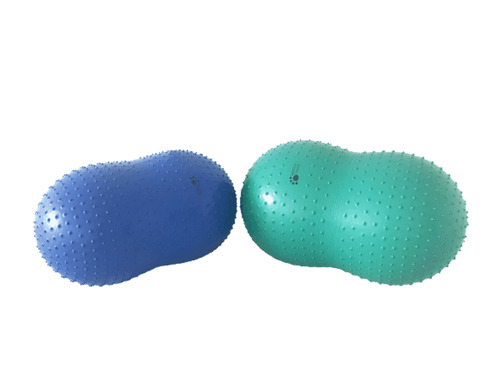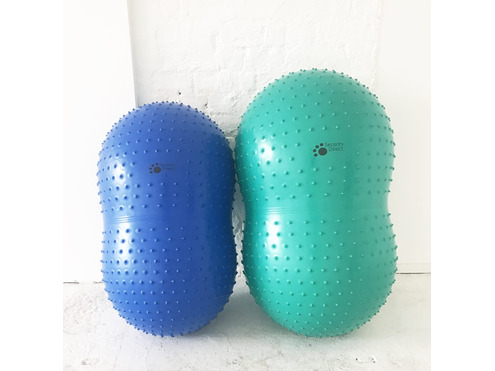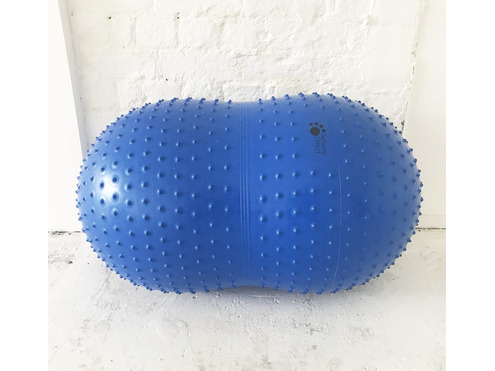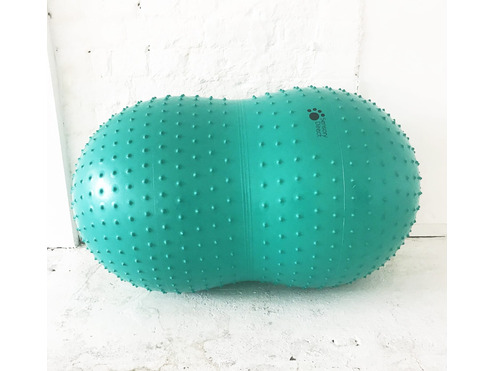Sensory Peanut Ball with tactile nodules
Our Price: £48.00
Why not add:
Description
Burst resistant Peanut Balls for therapy and fun!
Good for:
- Therapeutic use, especially for those who have problems with balance and coordination.
- The shape of the ball encourages both children and adults to engage core muscles to build strength and improve posture.
- This version has sensory nodules on the surface for additional sensory feedback.
- These therapy balls offer greater stability than regular, round therapy balls by limiting movement to forward and backward. Use it as a bench or straddle it for extra stability. Big enough for a therapist and a child to sit together on the peanut ball.
- Products are in compliance with 93/42/EEC.
- Burst Resistance
- Latex Free
- Recommended weight: maximum 110 kg / 250 lbs
- Use under supervision
- Available in 45cm & 55cm
Choosing the correct size
As a quick guide before buying a ball, measure the distance from the users armpit to the middle finger tip and match this measurement to the height of the ball (within 5cm). This is a good starting point and once you have purchased your ball and inflated it you can follow steps 1 to 3 below to ensure you have the correct ball size.
Sizing
We have laid out some basic guidelines below, however we recommend that you consult with an or occupational therapist or physio with regards to the sizing of your ideal ball.
- With the user straddling the ball on the centre saddle, their weight is evenly distributed and feet are flat on the ground.
- Ideally the knees should be level with the pelvis creating a 90-degree angle at both the hips and the knees with the users thighs parallel to the ground.
- The head, shoulder and pelvis of the user should be in a vertical line, with no leaning necessary to act as a counter balance to keep them on the ball. The ball can be inflated and deflated slightly to adjust the height - the ball should be firm enough to sit on and should not exceed the maximum recommended size. A fully inflated ball will compress less and will therefore be less stable (making some exercises harder as the ball will tend to roll more easily). Letting a little air out will make increase the rolling resistance giving it more stability.
Reviews

 0
0 



